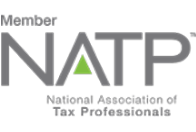Many of us are taking care of our aging parents or loved ones that are facing disabilities, making sure that they are comfortable and healthy as they can be. And it is a great relief to know that there is an available tax credit tailored for the elderly or disabled individuals that can provide financial relief and support to those providing care.
The tax credit for the elderly or disabled individuals is a government-provided benefit to financially assist those taxpayers with limited capacity to earn income. The tax credit ranges from $3,750 to $7,500 depending on the taxpayer’s income and tax filing status.
Unlike a tax deduction which lowers your taxable income, a tax credit directly reduces an individual’s federal tax liability. This can be a huge help for the elderly or disabled taxpayers if they meet the eligibility requirements for the tax credit.
To avail this tax credit, an individual must pass the following tests:
1st Test: Are You a Qualified Individual?
You may avail this tax credit if you are a U.S. citizen or resident alien, and you are:
- Elderly: aged 65 years or older during the taxable year; or
- Disabled: below age 65 but you retired due to permanent or total disability, you received taxable disability income, and you had not reached your employer’s mandatory retirement age.
The Internal Revenue Service (IRS) deems you age 65 a day before your 65th birthday. So, if you were born on January 1, 1959, you are considered 65 years old on December 31, 2023.
Disability Requirements
Even if you have not formally filed for retirement, you may still be considered a retiree on disability if you ceased working due to your condition.
Permanent or Total Disability. If you are a retiree due to disability, one of the requirements to avail the tax credit is to secure a statement from a qualified physician certifying that you have a permanent or total disability that has lasted or is expected to last for more than 12 months or that may result in death.
The IRS defines “permanent or total disability” as not being able to engage in any substantial gainful activity because of your mental or physical condition.
Substantial gainful activity means the performance of significant duties over time earning at least the minimum wage. Taking care of yourself or home, engaging in hobbies, being active in clubs or social programs, or working under sheltered employment are not considered substantial gainful activities.
Disability Income. A retiree that is under age 65 must also have a disability income received under an employer’s accident, health, or pension plan. The income must be received from a plan that provides disability retirement benefit, otherwise, it will not qualify as disability income.
2nd Test: Is Your Income within the Limits?
Individuals who qualify under the age or disability requirements must also pass the two income limits that vary depending on filing status. The first limit is for the adjusted gross income (AGI) while the second limit is for the nontaxable social security, pensions, annuities, or disability income you received.
You may avail the tax credit if your income is less than the specified limit as presented in the table below:
| Filing Status | Adjusted Gross Income (AGI) Limit | Nontaxable Income Limit |
| Joint Filers with one qualifying spouse | $20,000 | $5,000 |
| Joint Filers and both spouses qualify | $25,000 | $7,500 |
| Married Filing Separately and you lived apart from your spouse for the whole year | $12,500 | $3,750 |
| All Other Filers | $17,500 | $5,000 |
Figuring the Tax Credit
Use the Schedule R (Form 1040) to figure and file for the tax credit. Remember that the amount of your credit is generally limited to the amount of taxes you owed.
If it becomes too overwhelming to compute, you may want to hire our tax expert at 1099 Accountant for your tax filing needs.
Want to learn more?
You may want to consult and work with 1099 Accountant – We offer online bookkeeping, online advisory services and online tax and accounting services. We offer reasonable rates. We only work with independent contractors, freelancers, and one-person business. We work with locum tenens from California to New York City and everywhere in between. Yes, even Hawaii!
Contact us toll-free (855)529-1099 or make an appointment for a free consultation. Contact Us











